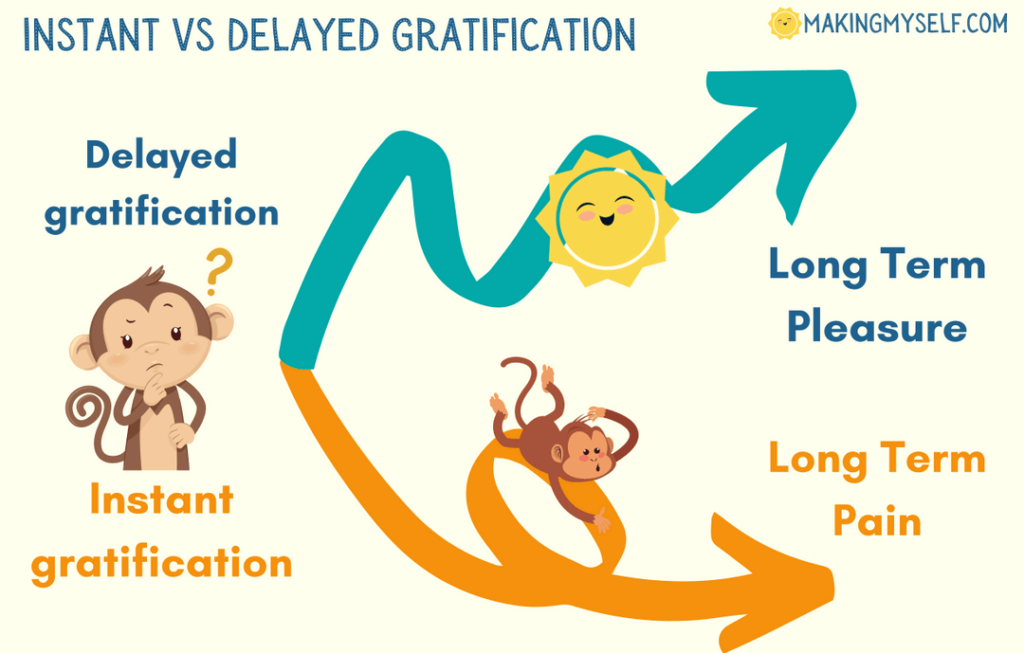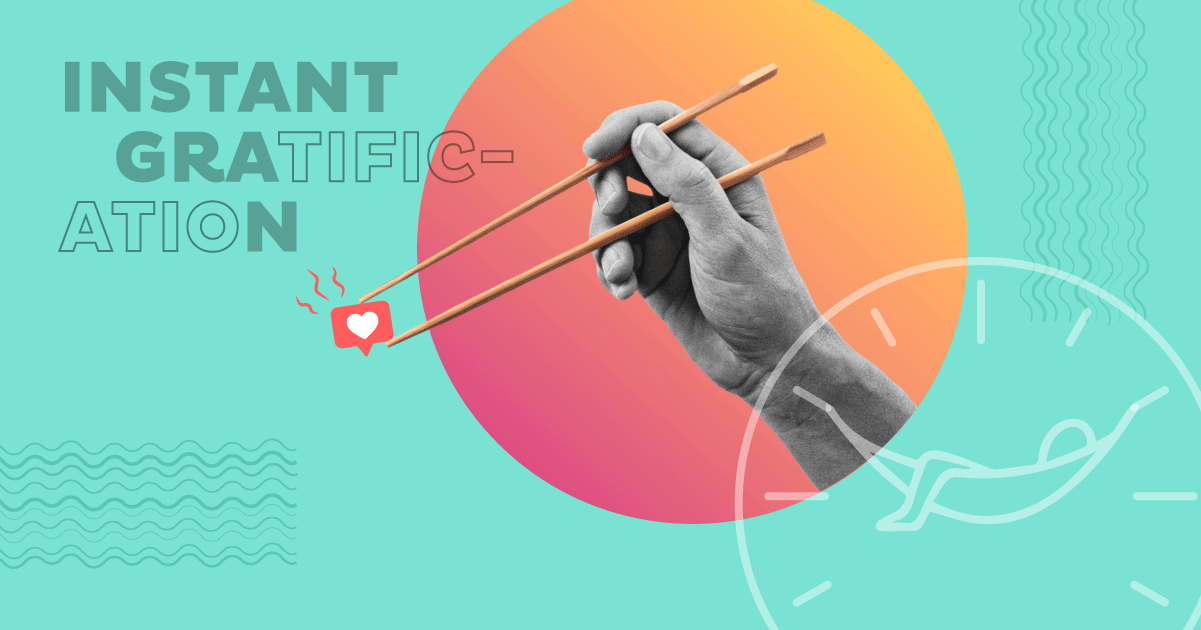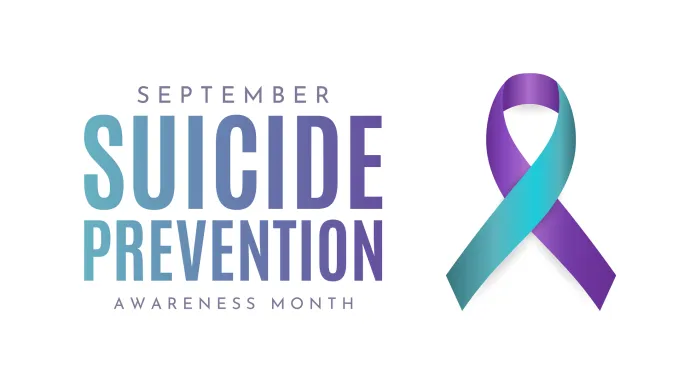The Psychology of Instant Gratification: Understanding Our Key Impulsive Urges

What is instant gratification? Instant gratification can be defined as the inclination to choose lesser, instant rewards over greater, delayed ones. In today’s fast-paced world, instant gratification as a concept has turned out to be an integral part of our daily lives. People are inclined to on-demand screening, including social media likes, fast food, as well as the allure of immediate rewards that typically outweighs the benefits of resilience and delayed gratification.
In the last few decades, the instant gratification concept deeply rooted in human psychology has been a topic of interest among mental health professionals, academicians and researchers. In this blog article, we are going to delve into instant gratification psychology and explore its causes, impacts, and probable techniques or strategies that can be used to manage these impulsive urges.
The Pleasure of Now: The Science/Psychology Behind Instant Gratification
Instant gratification behavior is driven by the brain’s pleasure centres, especially dopamine release, a neurotransmitter linked to pleasure and reward. When an individual receives immediate rewards, including a phone notification or a delicious bite of dessert, the brain tends to experience a surge of dopamine, which results in a sense of pleasure and satisfaction.
The Evolutionary Perspective: Survival and Adaptation
Examining how our ancestors used to live, instant gratification was beneficial. Evolutionarily, humans were required to respond quickly to immediate threats, including environmental dangers and predators. They were also required to seek instant rewards linked to finding food and securing shelter that lengthened the chances of survival. While instant gratification was helpful for our ancestors, it is creating havoc nowadays and hence requires a more balanced approach.
The Digital Age and Instant Gratification
With the rise of new technologies as well as the digital age, the allure of instant gratification is being amplified. Social media platforms, including Instagram, Facebook, and Twitter, are making it easier for users to access immediate rewards. Other elements contributing to instant gratification include online shopping and streaming services. The regular notifications from these platforms as well as instant feedback triggers dopamine release reinforming the behaviour of seeking quick rewards. Such a continuous cycle results in addictive behaviours and a lessened ability to tolerate delayed gratification.

Consequences of Overindulgence in Instant Gratification
While seeking instant rewards can result in temporary pleasure, it comes with the cost of poor long-term well-being. Overindulgence in instant gratification results in various consequences, including;
Impaired Self-Control
According to a study by Duckworth and his colleagues, constantly giving in to impulsive urges tends to weaken our self-control over time. For example, when we cannot manage our social media usage, we waste a lot of time, which results in not concentrating on other areas of life, such as education. Overindulgence in instant gratification results in difficulties in making rational decisions, managing emotions and attaining long-term goals.
Adverse Financial Implications
Instant gratification can also lead to overspending and, in some cases, debt. For people addicted to online shopping, they tend to overspend, leading to long-term financial stability.
Poor Health and Well-being
When focusing and pursuing instant rewards, such as overconsumption of unhealthy foods or sedentary activities, can later lead to ill health in the long run. For example, overconsumption of junk ordered online (instant gratification) can lead to diabetes, among other physical-related issues.
Relationship Strain
Instant gratification linked to mobile usage results in neglecting relationships. People who are addicted to Instagram, among other social media platforms, neglect relationships, and they also fail to invest efforts and time into meaningful, profitable connections.

Strategies for Managing Instant Gratification
Understanding the adverse impacts of instant gratification becomes the first step towards managing such impulsive urges. Below are a few strategies people addicted to instant gratifications can adopt to cultivate a healthier balance.
Delayed Gratification
If you are addicted to instant gratification, gradually increase your tolerance for delayed rewards. Start by setting small goals that require discipline and patience. For example, you can start by not using social media platforms during day time and only using them in the evening for thirty minutes. Once you set such goals and succeed, celebrate the achievement. Celebrating such wins reinforces the value of waiting.
Digital Detox
Another key strategy for managing instant gratification regarding mobile and social media usage is limiting screen time and notifications. When such are reduced, this leads to the reduction of constant dopamine-triggering stimuli from technology. You should create designated periods for checking messages and social media, which helps regain control over the impulses.
Reward Substitution
Another key strategy towards managing instant gratification is replacing instant rewards with healthier substitutes. Instead of sitting for hours to watch YouTube, how about engaging in a hobby or spending quality time with your loved ones? Replacing instant gratifications with healthier substitutes results in fulfilling long-lasting pleasures.
Precommitment
Another great way of protecting ourselves from instant gratification temptation is making decisions beforehand. If we set key decisions in stone now, there are fewer chances of changing the mind or backtracking when faced with a decision.
Conclusion
In summary, instant gratification, rooted in our evolutionary history, has taken on new dimensions in today’s digital era. Understanding instant gratification psychology, including the science behind impulsive urges, empower us to make mindful choices. It also helps foster a healthier balance between immediate pleasures and long-term well-being. If we implement strategies to manage instant gratification, we will easily regain control over our impulses and lead more fulfilling lives in an increasingly fast-paced world.






